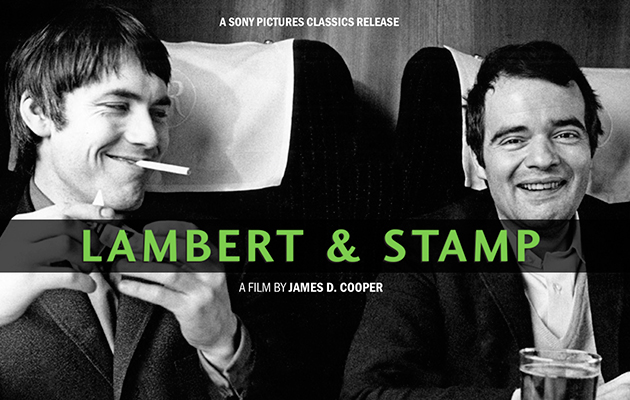At first glance, it’s hard to work out quite what Kit Lambert and Chris Stamp had in common. One, the Oxford-educated son of an esteemed classical composer; the other the son of a tugboat captain from London’s East End. As one bemused interviewee reasons in Lambert & Stamp, “If you’d mad...
At first glance, it’s hard to work out quite what Kit Lambert and Chris Stamp had in common. One, the Oxford-educated son of an esteemed classical composer; the other the son of a tugboat captain from London’s East End. As one bemused interviewee reasons in Lambert & Stamp, “If you’d made this up as a sitcom idea… it wouldn’t work. It’s too far fetched.”
But Lambert and Stamp’s interests converged in film: they met in the early Sixties while both employed at Shepperton studios as assistant directors and both harboured dreams of directing. Their entry point, they reasoned, would be to document the emerging London music scene by following an upcoming band: The High Numbers. What they lacked in experience and knowledge of rock’n’roll, they compensated for in what Stamp calls ideas-driven “balls in the air” tactics. Pete Townshend, meanwhile, recalls the sharpness of Lambert’s thinking: “‘We need to have an address in Eton Place, because then we won’t ever have to pay our bills’.”
Lambert died in 1981 and appears here in archive footage; Stamp, meanwhile, was filmed at length before his death in 2012 by director James D Cooper. Stamp is terrific value, his thoughts windmilling at a ferocious rate. For once even Townshend is relegated to supporting player; though of course, he still finds time to lecture Roger Daltrey on a particular aspect of their band’s history. Other interviews with Terence Stamp, Heather Daltrey, Richard Barnes add shading to this intimate portrait of the unlikely partnership behind one of rock’s greatest bands.
The final sequences, of Stamp visiting Lambert’s grave and reunited on screen with his former charges for a black tie award’s ceremony in America, are especially touching. “There are a lot of things we could have done and should have done and didn’t do,” reflects Stamp finally. “But we did enough.”
Follow me on Twitter @MichaelBonner



